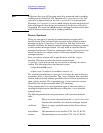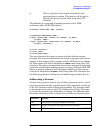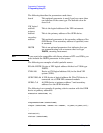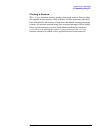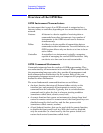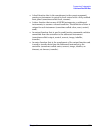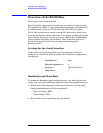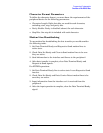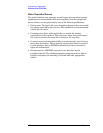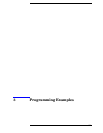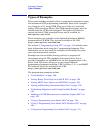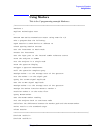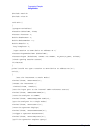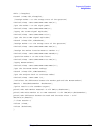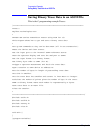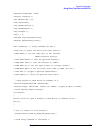
126 Chapter 2
Programming Fundamentals
Overview of the RS-232 Bus
Data Transfer Errors
The serial interface can generate several types of errors when certain
conditions are encountered while receiving data from the peripheral
device. Errors can be generated by any of the following conditions:
• Parity error. The parity bit on an incoming character does not match
the parity expected by the receiver. This condition is most commonly
caused by line noise.
• Framing error. Start and stop bits do not match the timing
expectations of the receiver. This can occur when line noise causes
the receiver to miss the start bit or obscures the stop bits.
• Overrun error. Incoming data buffer overrun caused a loss of one or
more data characters. This is usually caused when data is received
by the interface, but no ENTER statement has been activated to
input the information.
• Break received. A BREAK was sent to the interface by the
peripheral device. The desktop computer program must be able to
properly interpret the meaning of a break and take appropriate
action.



